AI tools can greatly improve small businesses. They streamline operations and boost efficiency.
Running a small business is challenging, but AI tools can help. These tools automate repetitive tasks, analyze data, and offer insights. They save time and reduce costs. AI can handle customer service, manage inventory, and even predict market trends. This allows business owners to focus on growth and strategy.
With AI, small businesses can compete with larger companies. It’s not about replacing humans but enhancing their capabilities. Explore how AI tools can transform your business operations and lead to success. Learn how to integrate AI into your daily tasks and see the benefits unfold.
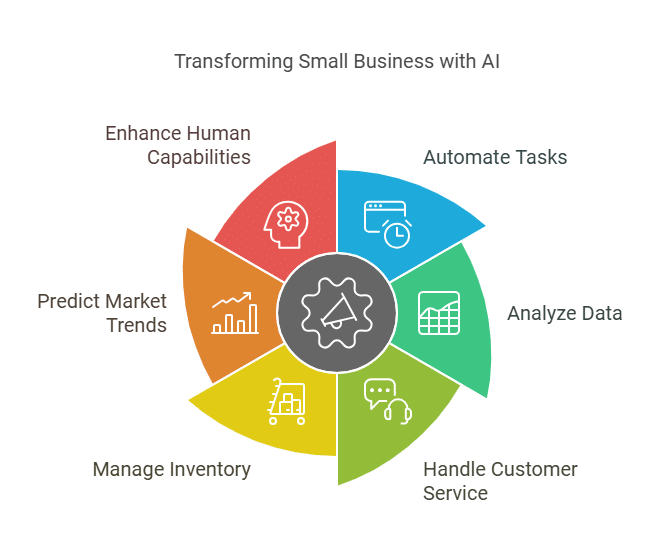
Contents
Introduction To AI for Small Business
Artificial intelligence (AI) is changing many industries. AI is not just for large companies. Small businesses can also benefit. AI tools can help improve operations, marketing, and customer service. Understanding AI can give your small business a competitive edge.
Benefits Of AI
AI offers many benefits for small businesses. Some key benefits include:
- Efficiency: AI can automate routine tasks. This saves time and reduces errors.
- Cost Savings: AI reduces the need for extra staff. This saves money on salaries and training.
- Better Decision-Making: AI analyzes data quickly. This helps in making informed decisions.
- Customer Insights: AI tools can analyze customer behavior. This helps in understanding customer needs better.
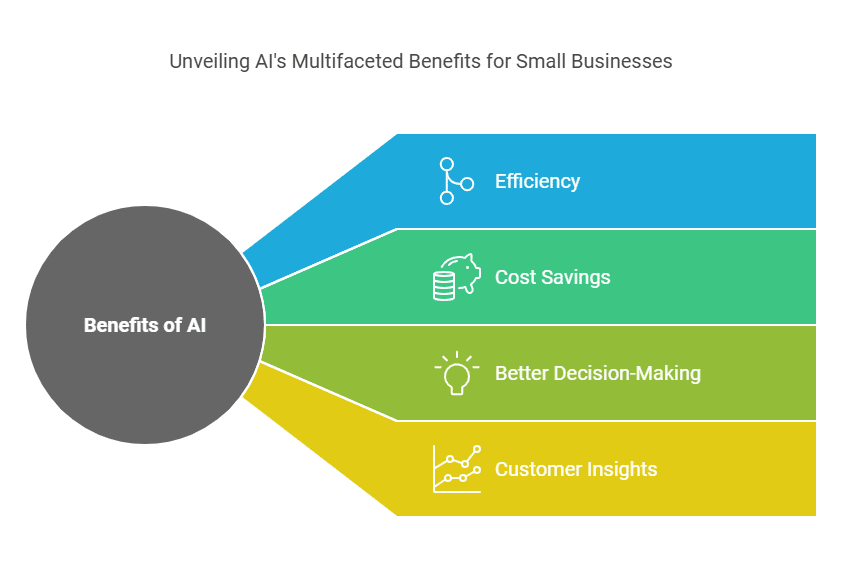
AI in Various Industries
AI is used in many industries. Here are some examples:
| Industry | AI Applications |
|---|---|
| Retail | AI helps in inventory management, customer service, and personalized marketing. |
| Healthcare | AI is used for patient care, diagnostics, and personalized treatment plans. |
| Finance | AI aids in fraud detection, customer support, and financial planning. |
| Manufacturing | AI improves production processes, quality control, and supply chain management. |
Identifying Business Needs
Identifying business needs is the first step to improving a small business with AI tools. Understanding your current challenges and setting clear goals will guide you toward the right AI solutions.
Current Challenges
Small businesses often face unique challenges. Identifying these challenges helps you choose the right AI tools.
- Limited manpower: Small teams may struggle with repetitive tasks.
- Time constraints: Owners often juggle multiple roles.
- Budget restrictions: Limited funds can hamper growth.
- Data management: Manual data handling can be error-prone.
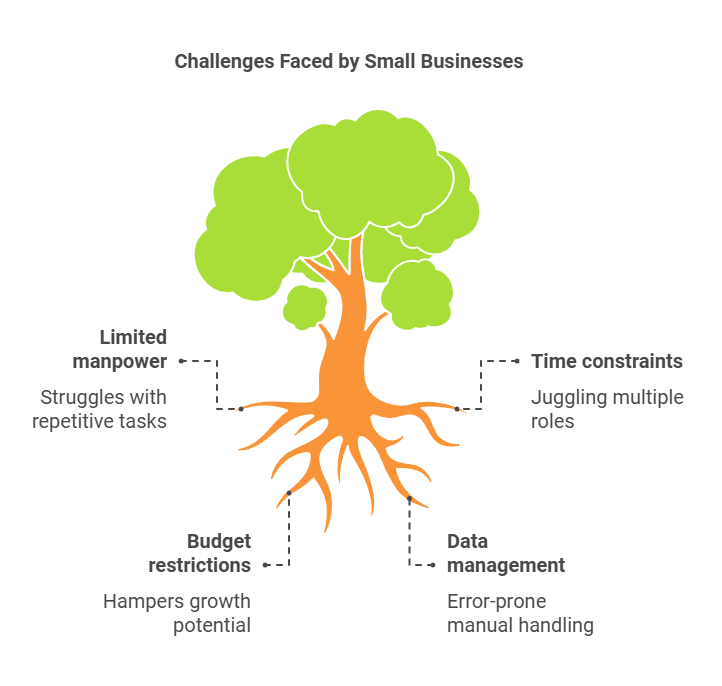
Recognizing these issues is crucial. It helps in selecting AI tools that provide real solutions.
Setting Goals
Setting clear goals is essential for effective AI integration. Define what you want to achieve.
- Increase efficiency: Automate repetitive tasks to save time.
- Enhance customer service: Use AI chatbots for 24/7 support.
- Improve marketing: Leverage AI for targeted campaigns.
- Optimize operations: Implement AI for better inventory management.
Clear goals help measure success. They guide your decisions on AI tool selection.
Choosing The Right AI Tools
Choosing the right AI tools can significantly improve your small business. The correct tools can automate tasks, increase efficiency, and save costs. But how do you choose the right ones? Let’s explore some types of AI tools and how to select them based on your needs.
Types Of AI Tools
AI tools can be categorized into different types. Each type serves a unique purpose and helps in various business areas.
- Chatbots: Assist with customer service and support.
- Data Analytics Tools: Analyze data to provide insights.
- Automation Tools: Automate repetitive tasks.
- Recommendation Engines: Suggest products or services to customers.
- Voice Assistants: Help with tasks using voice commands.
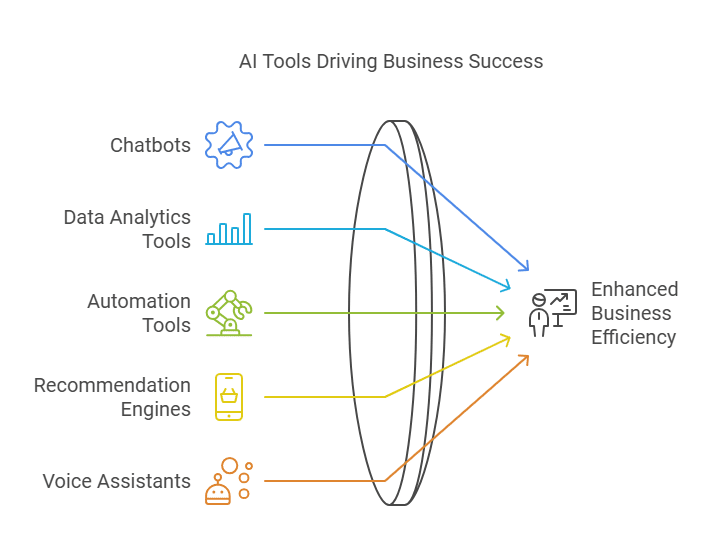
Selecting Based On Needs
To choose the right AI tools, first identify your business needs. Here’s how you can do it:
- List your business tasks and challenges.
- Determine which tasks can be automated or improved with AI.
- Match the tasks with the types of AI tools.
For example:
| Business Need | AI Tool |
|---|---|
| Customer support | Chatbots |
| Data analysis | Data Analytics Tools |
| Task automation | Automation Tools |
| Product recommendations | Recommendation Engines |
| Voice commands | Voice Assistants |
By aligning your needs with the right tools, you can make informed choices. This ensures you get the most benefit from the AI tools you implement.

Credit: biglysales.com
Implementing AI in Operations
Implementing AI in your small business operations can bring many benefits. AI tools can streamline processes, reduce costs, and improve efficiency. By integrating AI, you can focus more on growth and less on routine tasks.
Automation
Automation is one of AI’s key benefits. It allows you to automate repetitive tasks, which saves time and reduces human error.
- Customer Service: AI chatbots can handle common customer queries.
- Inventory Management: AI can track stock levels and reorder products automatically.
- Scheduling: AI tools can schedule meetings and reminders.
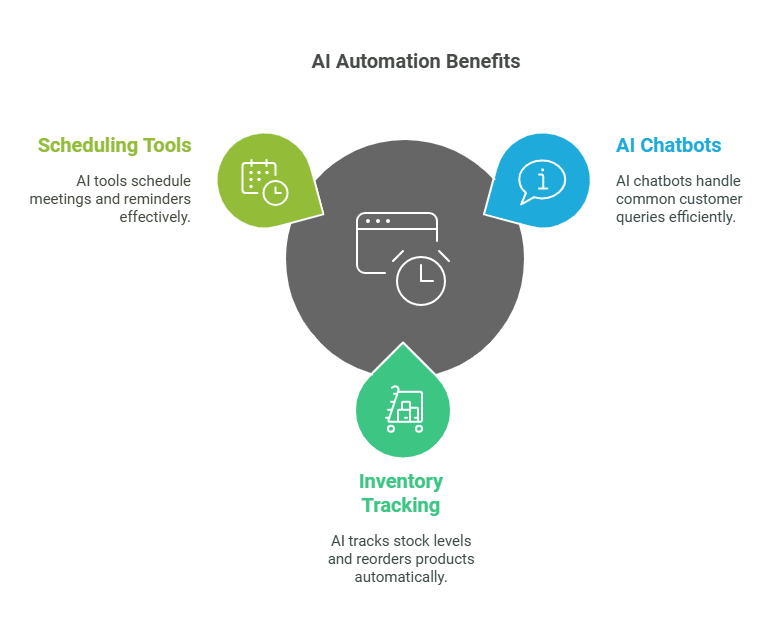
Automation ensures that your business runs smoothly. It frees up your team to focus on more critical tasks.
Data Analysis
Data analysis is crucial for making informed decisions. AI tools can quickly and accurately analyze large amounts of data.
Here are some areas where AI can help with data analysis:
- Sales Trends: AI can identify patterns in sales data.
- Customer Insights: AI can analyze customer behaviour and preferences.
- Market Research: AI can gather and analyze market data.
Using AI for data analysis gives you valuable insights. These insights can help you make better business decisions.
| Task | Traditional Method | AI Method |
|---|---|---|
| Customer Service | Human Agents | AI Chatbots |
| Inventory Management | Manual Tracking | AI Monitoring |
| Data Analysis | Manual Reports | AI Analysis |
Integrating AI into your operations can significantly improve productivity. It helps in reducing costs and enhancing customer satisfaction.
Enhancing Customer Experience
Enhancing customer experience is vital for any small business. AI tools can help you create a more personalized and responsive experience for your customers. Using AI, you can understand customer needs better and provide quicker, more accurate responses. This section explores how AI can enhance your customer experience through personalized marketing and customer support chatbots.
Personalized Marketing
Personalized marketing uses AI to analyze customer data and preferences. AI tools can track customer behaviour on your website and social media. This data helps create targeted marketing campaigns.
Here are some benefits of personalized marketing:
- Increased Engagement: Customers receive content that matches their interests.
- Higher Conversion Rates: Personalized offers lead to more sales.
- Customer Loyalty: Tailored messages make customers feel valued.
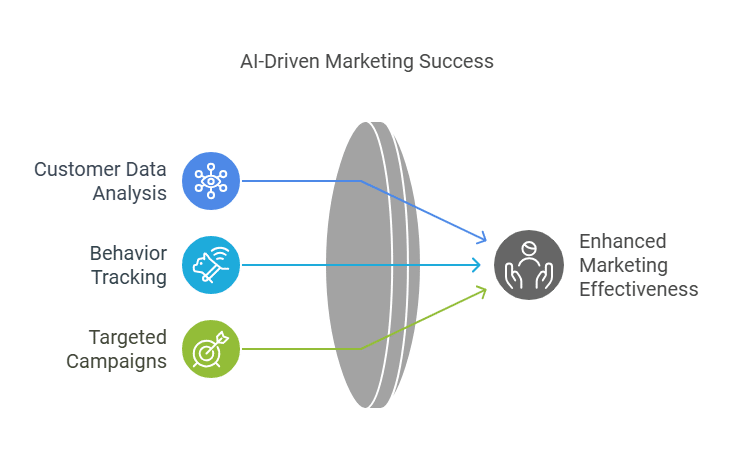
AI tools can automate email campaigns, suggest products, and create personalized ads. These tools save time and ensure each customer feels unique.
Customer Support Chatbots
Customer support chatbots provide instant responses to customer inquiries. These AI-driven tools can handle multiple queries at once, reducing wait times.
Key advantages of customer support chatbots include:
- 24/7 Availability: Chatbots are always online, helping customers anytime.
- Quick Solutions: They provide immediate answers to common questions.
- Cost-Effective: Reduces the need for a large support team.
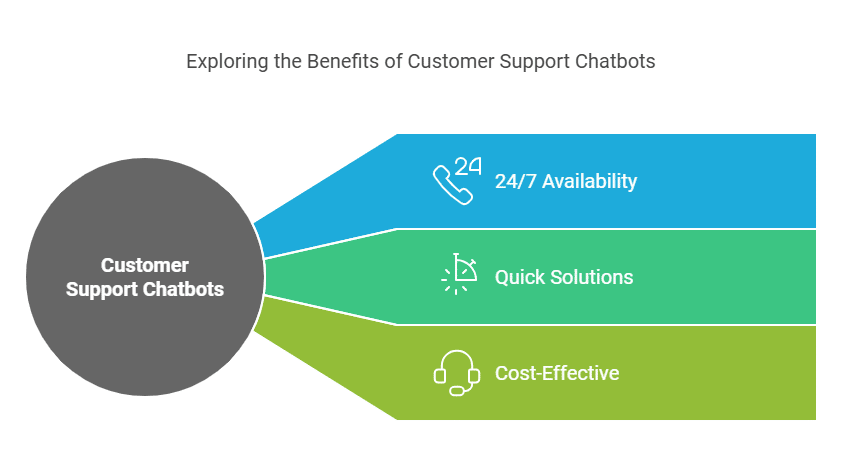
Chatbots can also escalate complex issues to human agents. This ensures customers always get the best possible service.
Boosting Productivity
Running a small business is hard. You have many tasks each day. AI tools can help you get more done. They can make your work easier and quicker. Here, we focus on using AI to boost productivity.
Task Management
Managing tasks can be overwhelming. AI tools can help you stay on top of things. They can remind you of deadlines and keep track of tasks. These tools can also assign tasks to the right people.
Here are a few popular AI tools for task management:
| Tool | Features |
|---|---|
| Asana | Task assignments, deadlines, progress tracking |
| Monday.com | Project planning, task prioritization |
| Trello | Visual task boards, checklists |
Workflow Optimization
Optimizing workflows can save time and effort. AI tools can streamline your processes. They can automate repetitive tasks and reduce errors. This lets you focus on important work.
Consider these AI tools for workflow optimization:
- Zapier – Connects apps and automates workflows
- IFTTT – Automates simple tasks between apps
- UiPath – Automates complex business processes
AI tools make task management and workflow optimization easier. This helps you boost productivity and grow your business.
Training And Support
Incorporating AI tools into your small business can boost efficiency. But to fully benefit, you need proper training and support. This ensures your team can use these tools effectively and confidently. Below, we explore how to provide training and ongoing support for your employees.
Employee Training
Start with a clear training plan. Employees need to know the basics first. Create easy-to-understand guides and tutorials. Video tutorials, step-by-step guides, and live demonstrations are effective methods for grasping new concepts quickly.
Organize training sessions regularly, either weekly or bi-weekly. Use these sessions to address doubts and practice using AI tools. Encourage employees to ask questions and share their experiences. This interaction helps everyone learn faster.
Consider using simulation tools. These allow employees to practice without real-world consequences, building confidence and proficiency. Also, provide hands-on projects. Real-life tasks help improve understanding and retention.
| Training Method | Benefits |
|---|---|
| Video Tutorials | Visual and easy to follow |
| Step-by-Step Guides | Detailed and structured |
| Live Demonstrations | Interactive and engaging |
| Simulation Tools | Safe practice environment |
Ongoing Support
Training is just the beginning. Your team needs ongoing support to fully adapt to AI tools. Set up a support system for them. This can include a help desk or a dedicated support team. They can assist with any issues or questions that arise.
Regularly update training materials. AI tools evolve, and so should your training resources. Keep your team informed about new features and updates. This ensures they stay current and efficient.
Encourage a feedback loop. Ask employees for their input on the training and tools. Their feedback can help improve the training process and ensure that the tools effectively meet their needs.
Provide access to external resources, such as online courses, webinars, or forums. These resources offer additional learning opportunities and expert insights.
- Help desk or dedicated support team
- Regular updates to training materials
- Feedback loop from employees
- Access to external resources
By focusing on training and support, you can ensure your team is well-equipped. This will help them make the most of AI tools and improve your small business.
Measuring Success
Measuring success is crucial for any small business using AI tools. It helps you understand the impact of AI on your operations and growth. By tracking the right metrics, you can make informed decisions and refine your strategies.
Key Metrics
To measure success, focus on key metrics. These metrics should align with your business goals. Here are some important ones to consider:
- Revenue Growth: Track changes in revenue since implementing AI tools.
- Customer Acquisition Cost (CAC): Measure the cost to acquire a new customer.
- Customer Retention Rate: Monitor how well you keep existing customers.
- Operational Efficiency: Assess improvements in productivity and cost savings.
- Customer Satisfaction: Use surveys and feedback to gauge customer happiness.
Continuous Improvement
Continuous improvement is vital for leveraging AI tools effectively. Regularly review and analyze your key metrics. Here are some steps to ensure continuous improvement:
- Analyze Data: Use AI tools to analyze your business data.
- Identify Trends: Look for patterns and trends in your data.
- Set Goals: Based on trends, set realistic improvement goals.
- Implement Changes: Make data-driven changes to your processes.
- Monitor Results: Track the impact of changes on your key metrics.
Regularly updating your strategies based on data ensures you stay competitive. It also helps you adapt to market changes quickly.
Frequently Asked Questions
What Are The Best AI Tools for Small Businesses?
AI tools like chatbots, predictive analytics, and CRM systems can streamline operations. They help automate customer service, forecast sales, and manage leads.
How Can AI Improve Customer Service?
AI improves customer service by providing instant responses through chatbots. It helps in resolving queries quickly and enhancing customer satisfaction.
Can Ai Help In Marketing My Small Business?
Yes, AI can optimize marketing campaigns. It analyzes data to target the right audience, improving engagement and conversion rates.
How Does AI Help In Inventory Management?
AI helps in inventory management by predicting demand. It ensures optimal stock levels, reduces waste, and prevents stockouts.
Conclusion
Implementing AI tools can significantly benefit your small business. These tools streamline processes, save time, and enhance productivity. They also offer valuable insights for better decision-making. Start with a few AI tools and gradually expand. Monitor results and adjust as needed.
Remember, consistency is key. Embrace technology to stay competitive. AI can help your business grow smarter and more efficient.
No related posts.

